-
Pianos
-
Guitars
-
Instruments
-
Music
- Services
- Help & Advice
-
Events
- Sat 21 June: Yamaha Piano Day
- Thu 26 June, 6:30 PM - Iwan Owen: Piano Recital
- Sat 5 July from 10:30 am - Let’s Play The Piano! Mini Meetups
- Fri 18 July, 6:30 PM - Matthew Lau
- Sat 26 July 2pm: Free Seminar: M.A.D. Music & Art Seminar for Piano and Theory Graded Exam Tips, Accompaniment and Duet
- Fri 8 August, 6:30PM: Charity fundraiser for Tearfund - Mick Blaylock plays melodies for a summer evening
- Sat 23 August, 11:00 AM - Penelope Roskell: Piano Technique from Elementary to Intermediate
- Past Events
- Pre 2023 Events
- Music Lessons
- Blog
Jazz Resources at Forsyth
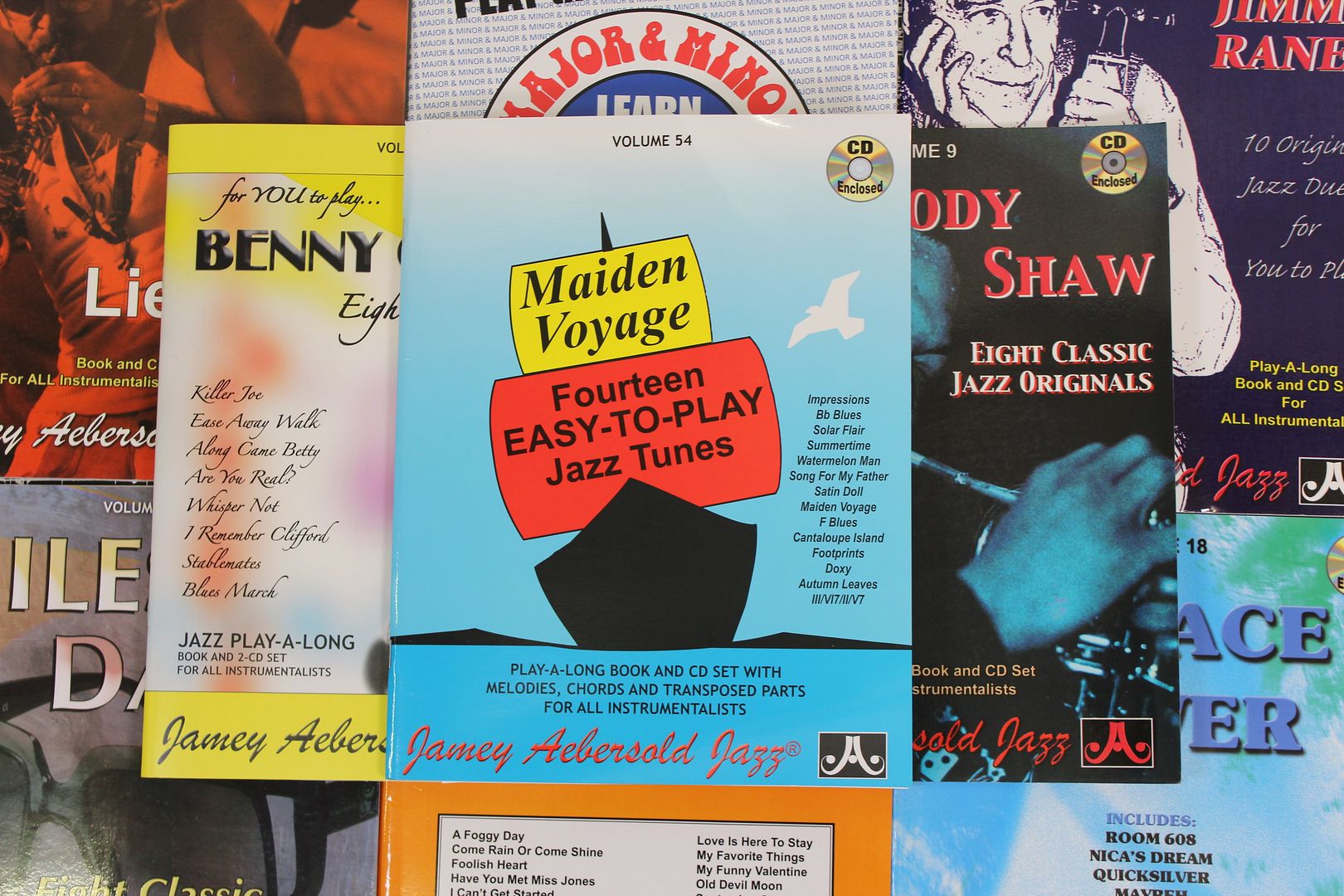 The teaching of jazz has changed. What began as almost an apprenticeship between musicians now gets taught in music colleges and universities worldwide. Any minor topic can have several books devoted entirely to its study and many people (my past self included) seem to collect as many of them as possible in the hope that it will take their playing to the next level.Some of these books have sat on my shelf for years barely opened but some have been absolute gems.Here are some of my favourites from over the years and what they have taught me. Some of them are directly related to jazz guitar (my specialism), others apply to any instrument, and all are among the comprehensive collection of jazz resources available from Forsyth.* *** *
The teaching of jazz has changed. What began as almost an apprenticeship between musicians now gets taught in music colleges and universities worldwide. Any minor topic can have several books devoted entirely to its study and many people (my past self included) seem to collect as many of them as possible in the hope that it will take their playing to the next level.Some of these books have sat on my shelf for years barely opened but some have been absolute gems.Here are some of my favourites from over the years and what they have taught me. Some of them are directly related to jazz guitar (my specialism), others apply to any instrument, and all are among the comprehensive collection of jazz resources available from Forsyth.* *** *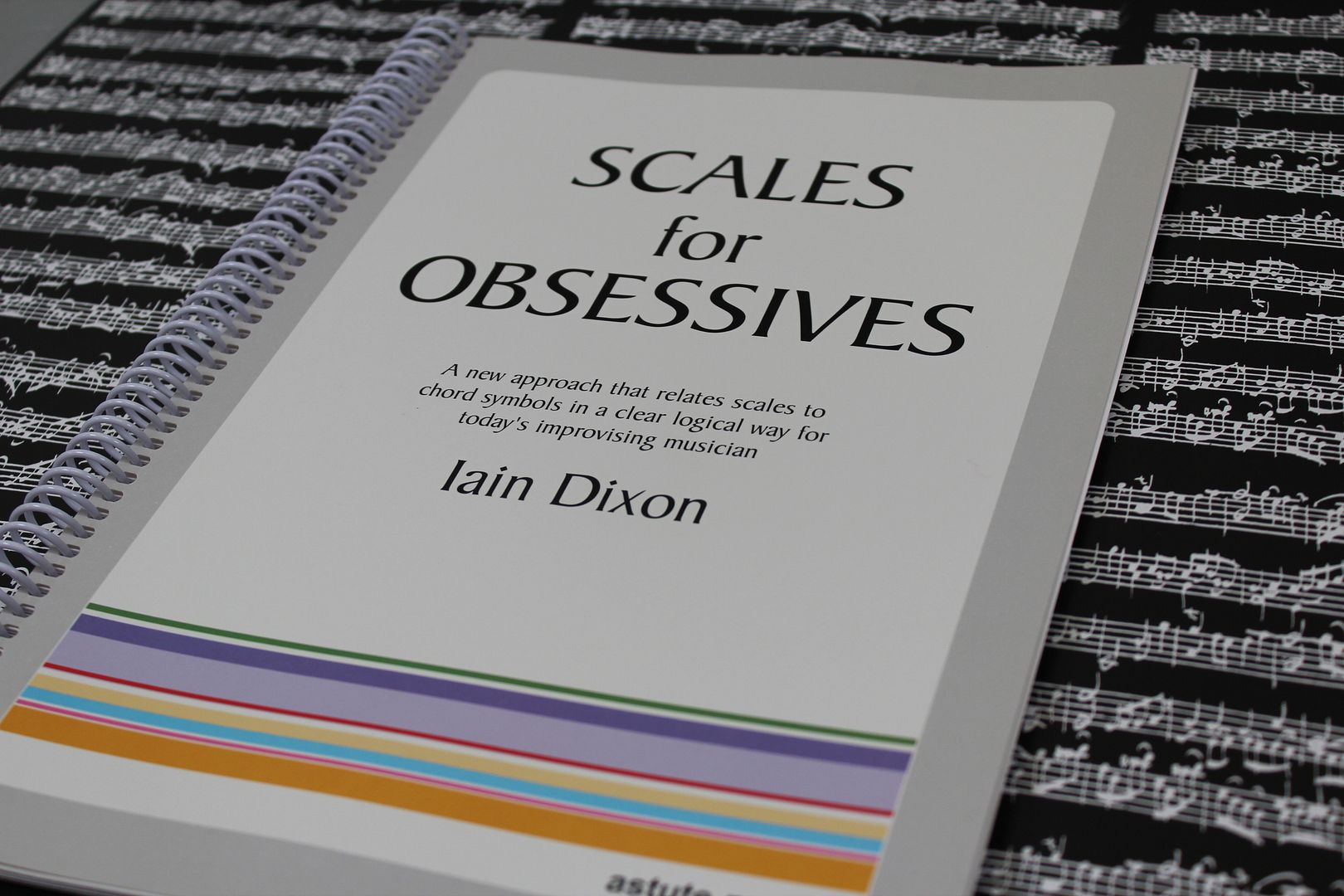 Scales for Obsessives - Iain DixonI took some private lessons with Iain a while ago which probably made me put so much work into using this book. Essentially the book is a manual of scales and modes. It goes through modes of the major, melodic minor, harmonic minor and harmonic major scales together with each arpeggio as well as the visual chord symbols. Playing through this book every day in every key really ingrained the sound of chord and scale relationships.Now obviously just being able to play lots of scales isn't going to automatically make you a great improviser but I can honestly say that time spent with this book helped me to open my ears up to note choices.* *** *
Scales for Obsessives - Iain DixonI took some private lessons with Iain a while ago which probably made me put so much work into using this book. Essentially the book is a manual of scales and modes. It goes through modes of the major, melodic minor, harmonic minor and harmonic major scales together with each arpeggio as well as the visual chord symbols. Playing through this book every day in every key really ingrained the sound of chord and scale relationships.Now obviously just being able to play lots of scales isn't going to automatically make you a great improviser but I can honestly say that time spent with this book helped me to open my ears up to note choices.* *** *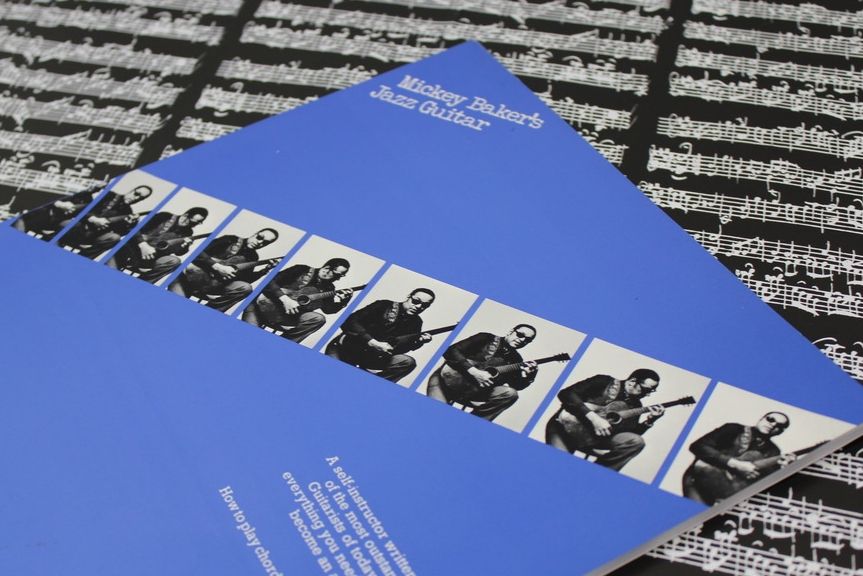 Complete Course in Jazz Guitar - Mickey BakerIf you are just starting out as a jazz guitarist then this is the book for you, particularly part 1. The book is split into a part 1 (chords) and part 2 (soloing). It's important to remember that the role of the jazz guitarist is primarily accompaniment and this book gives you some great practical chord voicings from the get go. It even provides charts with some great chord substitutions as well as many practice suggestions. It stresses a step-by-step mastery which I believe is one of the most important things when learning to improvise. This book is just what you need to start your jazz guitar journey. I even heard that Lenny Breau used to recommend it to some of his students.* *** *
Complete Course in Jazz Guitar - Mickey BakerIf you are just starting out as a jazz guitarist then this is the book for you, particularly part 1. The book is split into a part 1 (chords) and part 2 (soloing). It's important to remember that the role of the jazz guitarist is primarily accompaniment and this book gives you some great practical chord voicings from the get go. It even provides charts with some great chord substitutions as well as many practice suggestions. It stresses a step-by-step mastery which I believe is one of the most important things when learning to improvise. This book is just what you need to start your jazz guitar journey. I even heard that Lenny Breau used to recommend it to some of his students.* *** *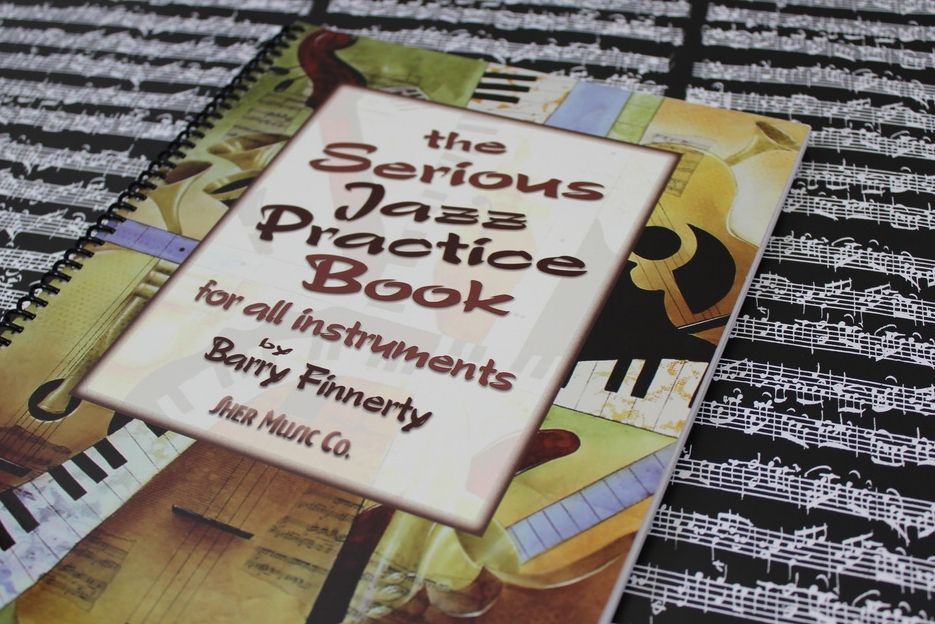 The Serious Jazz Practice Book - Barry FinnertyI'm still slowly working my way through this one. It's basically an encyclopedia of scale patterns beginning with diatonic scales and moving on to more exotic sounds. Barry seems to take you through every kind of interval as well as including chromatic approach notes and triad studies. The most important thing about this book is how to use it. When I first discovered this book I thought if I could play through the entire book then there was no way that I wouldn't become a great improvising musician. You can actually get a lot more out of taking just one of these exercises and applying it to everything, and more importantly practising improvisation with it, than you will just trying to learn the whole book.As Bill Evans said, "I would rather play one song for 24 hours than play 24 tunes in an hour".* *** *
The Serious Jazz Practice Book - Barry FinnertyI'm still slowly working my way through this one. It's basically an encyclopedia of scale patterns beginning with diatonic scales and moving on to more exotic sounds. Barry seems to take you through every kind of interval as well as including chromatic approach notes and triad studies. The most important thing about this book is how to use it. When I first discovered this book I thought if I could play through the entire book then there was no way that I wouldn't become a great improvising musician. You can actually get a lot more out of taking just one of these exercises and applying it to everything, and more importantly practising improvisation with it, than you will just trying to learn the whole book.As Bill Evans said, "I would rather play one song for 24 hours than play 24 tunes in an hour".* *** *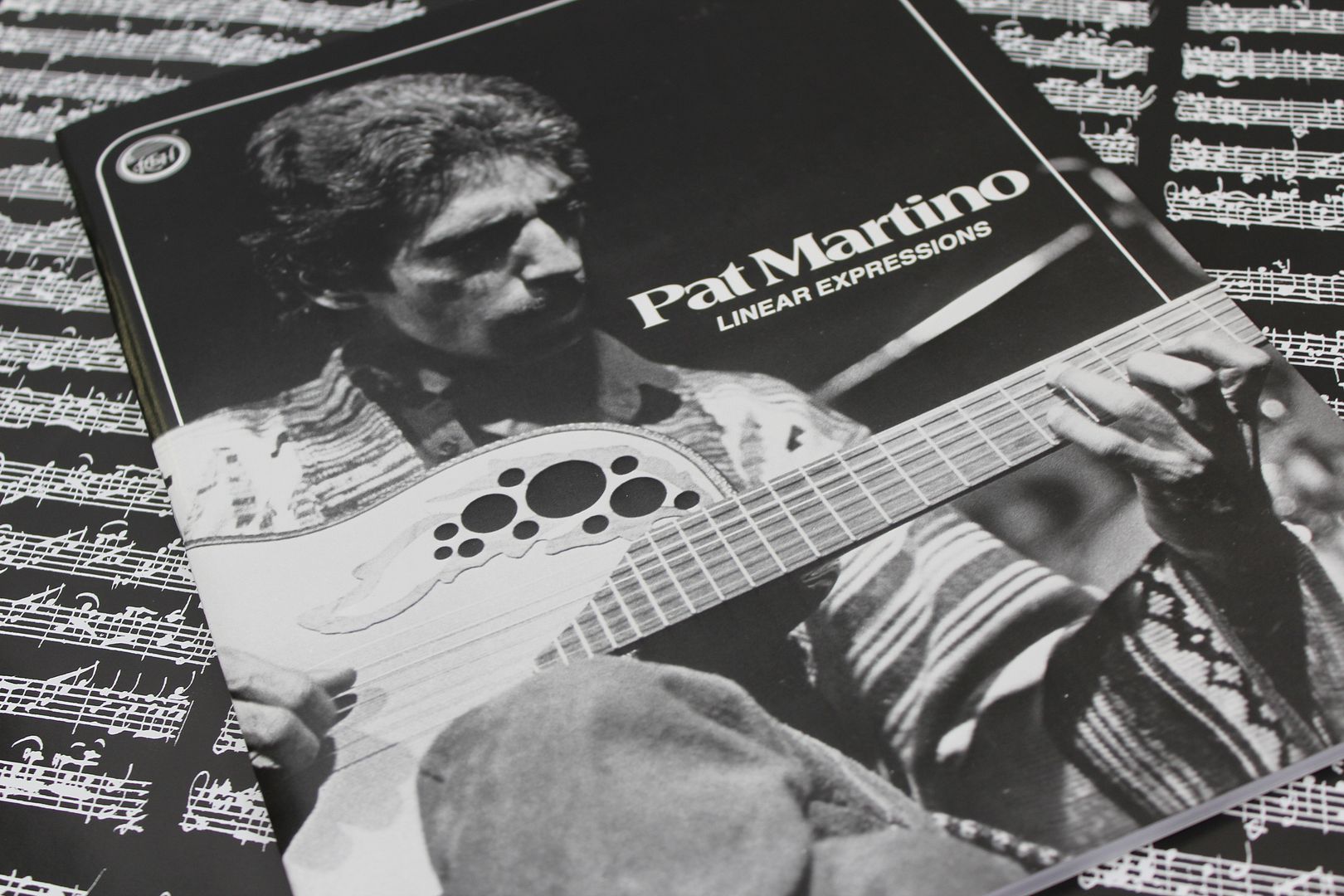 Linear Expressions - Pat MartinoThis book really upped my game. The 5 minor patterns seemed to inject loads of bebop vocabulary into my playing within a couple of weeks. The main subject of the book its Pat Martino's concept of minor conversion. If you have minor vocabulary you can pretty much play it over any chord. If you have a major 7 chord, just think of minor vocabulary starting on the 2nd. If you have a dominant 7th chord that isn't resolving, play minor vocabulary starting on the 5th and you'll be playing great sounding Lydian Dominant lines without needing to know what that means! It's a great way to really dig deeper into the material you might already know.* *** *
Linear Expressions - Pat MartinoThis book really upped my game. The 5 minor patterns seemed to inject loads of bebop vocabulary into my playing within a couple of weeks. The main subject of the book its Pat Martino's concept of minor conversion. If you have minor vocabulary you can pretty much play it over any chord. If you have a major 7 chord, just think of minor vocabulary starting on the 2nd. If you have a dominant 7th chord that isn't resolving, play minor vocabulary starting on the 5th and you'll be playing great sounding Lydian Dominant lines without needing to know what that means! It's a great way to really dig deeper into the material you might already know.* *** *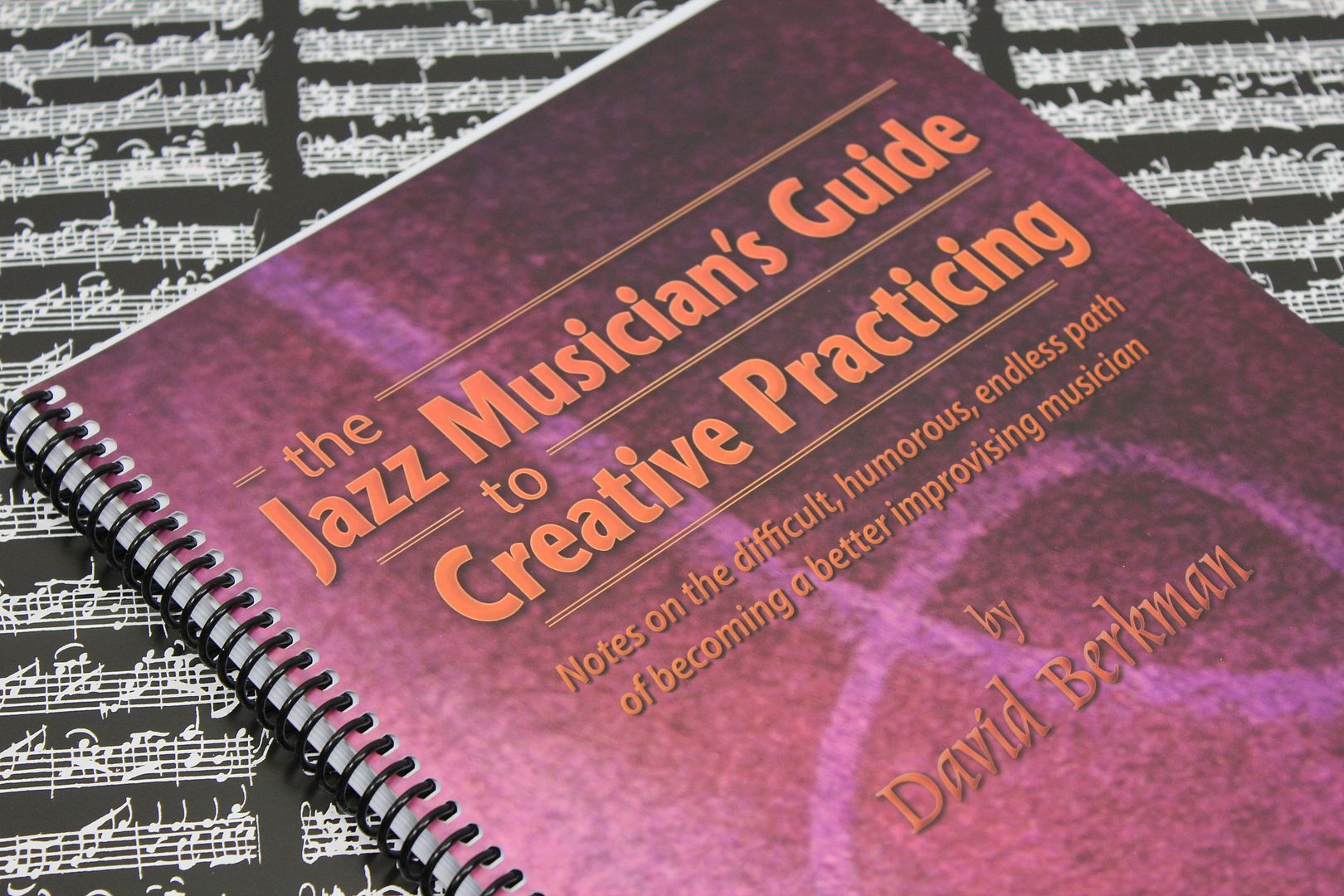 The Jazz Musician's Guide to Creative Practice - David BerkmanThis is a wonderfully-written book with loads of great anecdotes and truisms about the improviser's journey. I love the writing style and there are some absolute gems to be found in the content. I read Berkman's book quite a long time ago and as I've improved over the years I've heard advice similar to his come up time and time again. In particular the way he advises practising a continuous scale throughout a whole tune, changing to fit the harmony. I've heard similar things taught by Joe Pass but with continuous 8th-note improvisation and it can really put your knowledge of the chord changes to the test.* *** *Some more great jazz books:
The Jazz Musician's Guide to Creative Practice - David BerkmanThis is a wonderfully-written book with loads of great anecdotes and truisms about the improviser's journey. I love the writing style and there are some absolute gems to be found in the content. I read Berkman's book quite a long time ago and as I've improved over the years I've heard advice similar to his come up time and time again. In particular the way he advises practising a continuous scale throughout a whole tune, changing to fit the harmony. I've heard similar things taught by Joe Pass but with continuous 8th-note improvisation and it can really put your knowledge of the chord changes to the test.* *** *Some more great jazz books: The Jazz Theory Book - Mark LevineMaiden Voyage - Jamie Aebersold (Volume 54)The Real Book - Sixth Edition (available in editions for instruments in C, Bb and Eb)Charlie Parker Omnibook (available in editions for instruments in C, Bb and Eb)* *** *These are just some of the books that have helped me over the years and of course there are many more. However I strongly feel that what will take you the furthest is actively listening to jazz and learning from the greats. Stay tuned for a future blog post about some of our best jazz recordings – at least in my opinion!
The Jazz Theory Book - Mark LevineMaiden Voyage - Jamie Aebersold (Volume 54)The Real Book - Sixth Edition (available in editions for instruments in C, Bb and Eb)Charlie Parker Omnibook (available in editions for instruments in C, Bb and Eb)* *** *These are just some of the books that have helped me over the years and of course there are many more. However I strongly feel that what will take you the furthest is actively listening to jazz and learning from the greats. Stay tuned for a future blog post about some of our best jazz recordings – at least in my opinion!Lloyd Rhodes
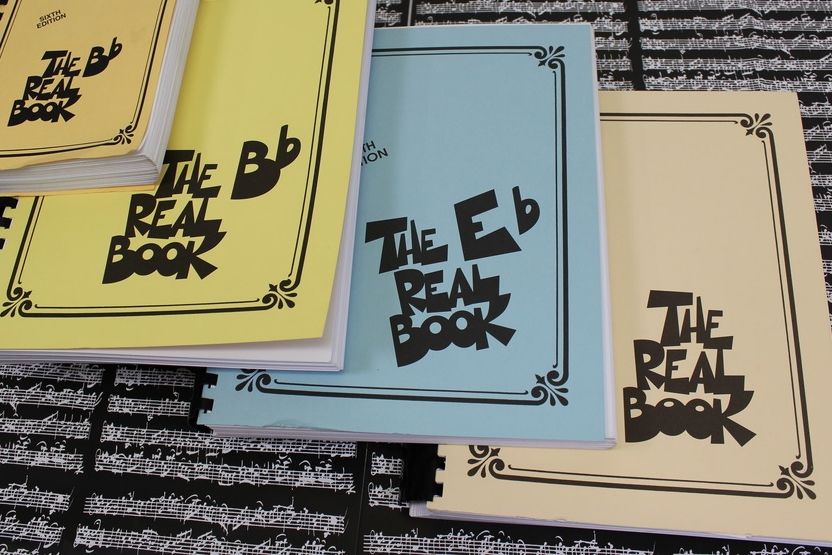
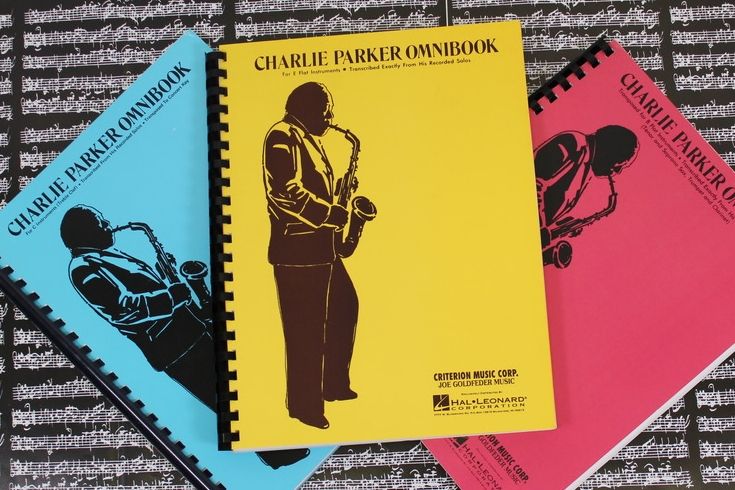
Posted On: Sep 24, 2016
Categories: Sheet Music Department
